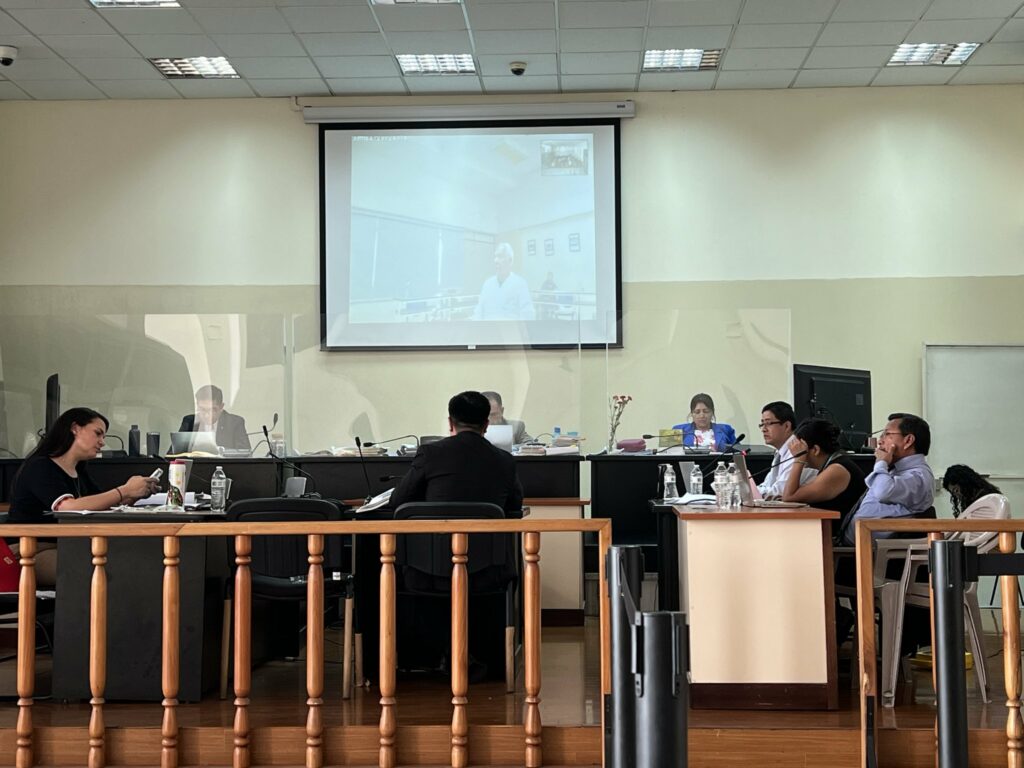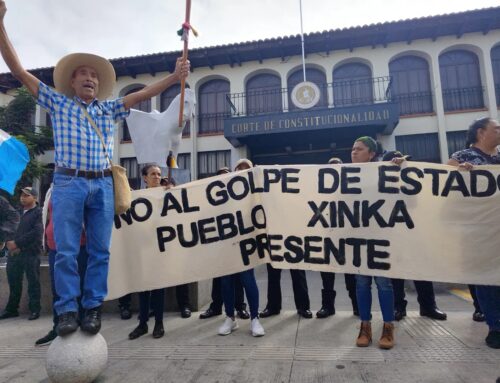Monday May 27th, 2024
Dr. Elizabeth Oglesby, a United States researcher, presented her findings confirming forced displacement suffered by the Ixil people. Oglesby recounted her initial work in Guatemala during the 1980s in the Ixil region, which was interrupted by the murder of Myrna Mack, the head of the research team.
Among the conclusions of her expertise, conducted on March 8, 2014, Oglesby highlighted the military’s objective to annihilate the Ixil people, considering it subversive due to its history. She noted that the army’s intent to eradicate the Ixil people was evident, citing the presence of the term “annihilate” in the Guatemalan army’s counterinsurgency warfare manual. Furthermore, she underscored the centrality of the concept of the internal enemy in counterinsurgency warfare.
Oglesby testified that military reports indicated an attempt in 1982 to eradicate the Ixil people entirely. She stated, “Simply being Ixil became a deadly offense.” She emphasized that strategies of annihilation and forced displacement, including massacres, prolonged displacement, scorched earth tactics, and widespread hunger, constituted acts of genocide.
Moreover, Oglesby pointed out the criminalization of individuals identified as Ixil by the army, as well as the perceived threat posed by civilians who fled to the mountains, challenging military control. She highlighted the creation of Civil Defense Patrols (PAC) as part of a strategy to exert territorial control.
The patterns identified by Oglesby were corroborated through interviews with military authorities, patrol members, survivor testimonies, and military plans.
Tuesday May 28th, 2024
Expert witness Carlos Paredes presented his conclusions regarding the psychosocial effects of violence on the Ixil people.
Expert witness Carlos Paredes reaffirmed during his testimony: “The characteristics of the massacres carried out in the communities, the selective persecution of individuals, exemplificative violence, harassment, and attacks on the displaced population were: a) repetitive, prolonged, sudden, and intentional; b) caused individuals to lose control over the situation and context; and c) The magnitude of what was happening led people to question their belief systems, resulting in the development of symptoms associated with Post-Traumatic Stress Disorder, Chronic Trauma Syndrome, and Chronic Anxiety State. In some cases, pathologies developed that caused mental disorders in the population.”
The expert explained the Guatemalan army’s strategy to create a climate of terror: “The violence perpetrated by the Guatemalan State in the Ixil region aimed to instill terror in the population to induce social paralysis. It employed methods such as depriving the population of their humanity, torture, sexual violence, and brutal death. As a result, a high percentage of the population remained under strict military control due to fear of exemplificative violence, creating a condition of learned helplessness and despair.”
Regarding the specific impacts on Ixil children, the expert testified to the court: “In the case of boys and girls, whose parents were murder, a sense of abandonment generalized throughout their lives, even into adulthood. This was compounded by the feeling of being stripped of their material possessions. With the loss of their parents, they lacked the necessary identification figures for Ixil identity construction and affirmation, causing deep damage to their sense of self. Orphanhood forced many children to relinquish their childhood, as they had to assume adult roles and exert considerable effort to provide for the family, effectively being ‘forbidden to be children.’ Additionally, these children were forced from a young age to assume parental roles, growing up without emotional security, without ties to their original culture, and facing serious social performance issues.”

Photo by NISGUA Internationalist. Guatemala City. May 2024





Leave A Comment